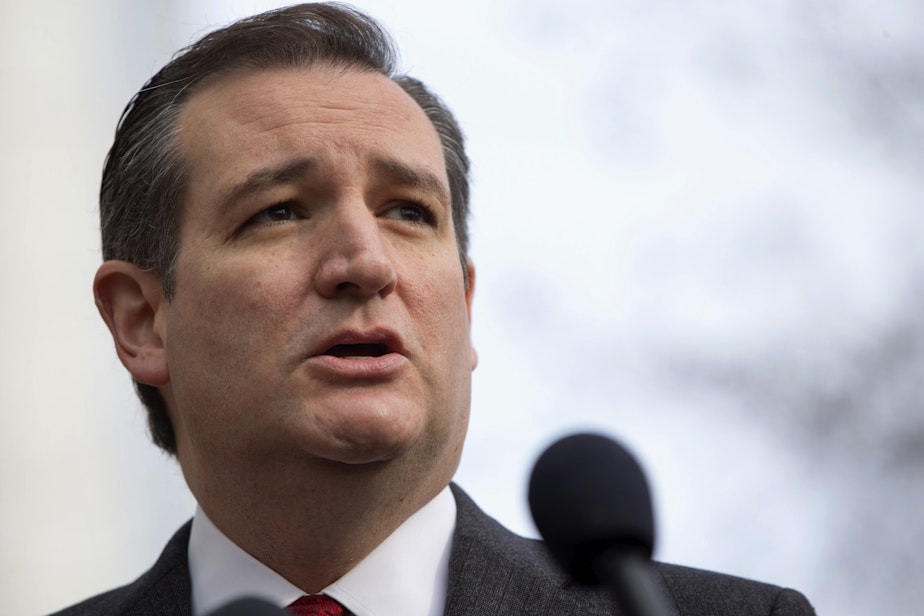Local Muslim To Ted Cruz: Think About The Impact Of Your Words

Along with the horror and sadness evoked by the bombings in Brussels on Tuesday, Seattle's Muslim community is also grappling with feelings of fear and anxiety.
Once again, they're worried about the possible backlash which can occur after events like this.
Aneelah Afzali is an attorney and a member of the Seattle Muslim community. She said her initial thoughts after the bombings were for the victims and their families.
"These are horrible tragedies and there is no justification for that sort of violence," Afzali said. "American Muslims, like all Americans, are shocked by the tragedy and deeply disturbed by it."
But, unlike all Americans, Afzali said she and other Muslims also fear the impact that some of the reactions to an attack can have. Reactions like the one from presidential candidate Ted Cruz.
Cruz released a statement Tuesday responding to the attacks in Brussels, which were claimed by ISIS, that said, "We need to empower law enforcement to patrol and secure Muslim neighborhoods before they become radicalized."
Afzali said this statement from Cruz disturbed her. "It really scares me to think about what he could potentially be meaning because it sounds very eerily similar to 1930s Germany in my mind."
She also said it's important for people like Cruz to think about the effect their words can have before making statements like this.
"That effect is essentially creating a divide, creating this 'us versus them' mentality," Afzali said.
"When candidates or commentators talk about Islam or Muslims in a way that incites fear or incites any kind of hatred against Muslims, actually we've seen the other side too, which is hate crimes against Muslims or those who look Muslim."
And Afzali has experienced the backlash that can occur.
"I have experienced fear, and my parents in particular are very scared for me and my siblings. Especially when I'm out in the open talking about these kinds of things," she said. "Having people look at you and showing fear or hatred, or acting on that fear or hatred, we've seen Mosques being burned or people showing up at Mosques and threatening people."
As an adult, Afzali said she can handle it. She has faith and surrounds herself with people who understand her. But she worries about what younger Muslims go through.
"I certainly have nieces and nephews who I get worried about as well. And that they're having to hear these kinds of things and being fearful for them and how they will be treated."
Cruz has defended his statement, saying that a stronger police presence is targeted in neighborhoods where there are issues with gang violence — neighborhoods with potential terrorists should be treated the same way.
Afzali said that this approach is flawed.
"Muslims are not in distinct neighborhoods where we could go after them. Secondly, it is actually wasting our valuable law enforcement resources when we just send them out to specific communities based on religion, as opposed to looking at what legitimate threats there are."
She said the American Muslim community wants to work with law enforcement officials to keep their neighborhoods and cities safe, and they are already doing so.
At the end of the day, Afzali said she's asking leaders and community members to change the rhetoric after a tragedy like the one in Brussels. She wants people to stand up and speak out in support of core American values.
"Stand up and affirm American values of religious freedom," Afzali said. "Give hope to the millions of American children growing up across the country. While some may try to divide us, we are and always will be Americans, united as one nation under God, indivisible with liberty and justice for all."

